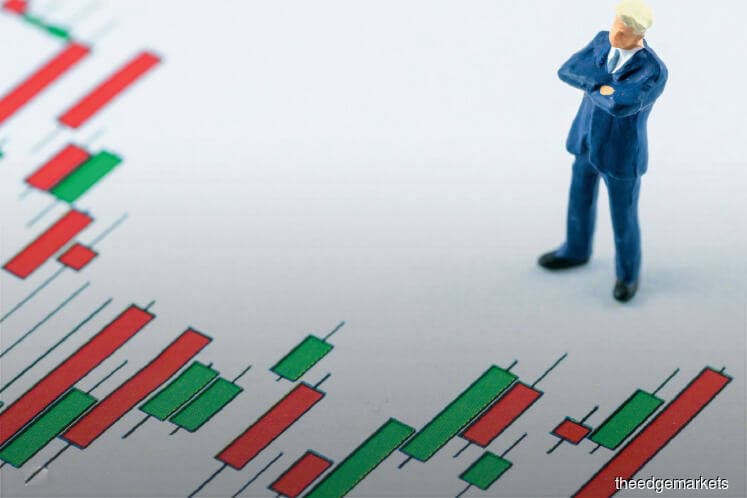
DESPITE all the talk of an inevitable correction in the US stock market in the last couple of years, the Dow Jones Industrial Average marched on and set new milestones in 2017, breaching the 20,000 level at the beginning of the year.
This has convinced Wall Street that the rally — which began in March 2009 — will continue. In end-November, the Dow breached the 24,000 level, another all-time high. Year to date, it has registered a return of 24.7% at 24,651.74 points.
Similarly, the S&P 500 Index surged to 2,675.81 points this year, giving a YTD return of 19.5%. The tech-laden Nasdaq Composite Index saw the highest return among the three main indices in the US — up 28.9% to 6,936.58 points.
And the US stock market was not the only one seeing a rally: Emerging markets also made a roaring comeback, even outperforming the Dow after a disappointing 2016.
Most Asian equity indices recorded at least double-digit growth, with Hong Kong’s Hang Seng Index emerging as one of the top performers (it surged 31.1% to 28,848.11 points).
A strong performance was also seen in European markets: Germany’s DAX has soared 14.1% YTD while France’s CAC 40 has risen 10%. The MSCI World Index has gained 19.1% YTD, the third highest yearly return over the last 10 years.
The rally was mainly driven by the momentum of the global economic recovery and strong corporate earnings.
What was even more impressive about the rally was that it happened amid the war of words between US President Donald Trump and North Korean leader Kim Jung-un, the Qatar-Gulf crisis, Brexit negotiations and the potential political risk faced by Germany after talks between the ruling centre-right Christian Democrats, left-wing Greens and centrist Free Democratic Party collapsed.
Nevertheless, these uncertainties have impacted some equity markets such as the UK bourse. The FTSE 100 gained only 4.87% as sentiment was affected by the confusion over how Britain will leave the European Union.
Similarly, the Qatar stock exchange was one of the worst performing markets, falling 21.3% due to the Saudi Arabia-led boycott.
Meanwhile, Malaysia’s FBM KLCI only managed to record a YTD return of 6.8% at 1,753.07 points, aided by export-driven companies such as semiconductor producers, glove makers and logistics operators.
The benchmark index performed well in the first half of the year but lost steam thereafter.
Despite rising commodity prices, investor sentiment remained subdued partly due to the long wait for the country’s 14th general election, which must be held in 2018.
Tech dominated in 2017 but …
This year’s top five companies in the world by market capitalisation were all from the tech sector — Apple Inc, Alphabet Inc, Microsoft Corp, Amazon.com and Facebook — which gave an average total return of 48.9%.
Exxon Mobil Corp was the only one among the top 15 companies that saw a YTD loss of 4.5%.
Hong Kong-listed Tencent Holdings Ltd was the top performer among the world’s 15 largest companies by market cap, recording a total return of 105.5% YTD. Alibaba Group Holding Ltd came in close behind with 97.6%.
Most analysts believe the expansionary phase of the business cycle, synchronised global earnings growth momentum and US tax reform will continue to be supportive of the markets going into 2018. However, large-cap tech companies, which have fuelled the 2017 rally, could become laggards.
One of the reasons for this is that their strong valuations have already been priced in. Furthermore, the US tax reform may not provide a significant boost for technology companies. The hope for sizeable tax reductions for American corporations has been one of the main drivers for Wall Street’s bullish view of stocks next year. The Republican tax bill that slashes the corporate tax rate to 21% from 35% was approved by the Republican-led Congress on Dec 20.
The market is optimistic that the financial sector will lead the rally next year as it will be the “key tax beneficiary”. More relaxed regulations and the potential for interest rate hikes will also boost the sector.
Nevertheless, sceptics and bearish investors caution that there could be turbulence ahead, citing expectations of higher interest rates and expensive valuation as signs of an impending bear market.
Another risk factor is the political uncertainties in the US, particularly issues surrounding Trump’s campaign ties with Russia. Interestingly, Trump’s former national security adviser, Michael Flynn, has pleaded guilty to lying to the Federal Bureau of Investigation. He is now cooperating with prosecutors in their probe into Russia’s meddling in the 2016 US presidential election.
But investors who are confident of the global economic recovery will likely bet on more upside next year. After all, an investor who invested in the US market eight years ago and ignored all the noises of a potential crash would have made an annualised total return of 14.1%.
Save by subscribing to us for your print and/or digital copy.
P/S: The Edge is also available on Apple's AppStore and Androids' Google Play.